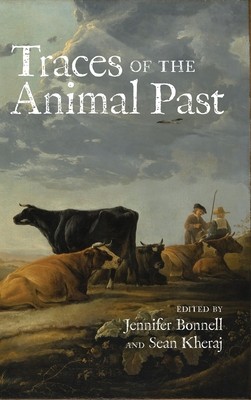
- We will send in 10–14 business days.
- Publisher: University of Calgary Press
- Pages: 284
- ISBN-10: 177385383X
- ISBN-13: 9781773853833
- Format: 15.2 x 22.9 x 3.3 cm, kieti viršeliai
- Language: English
- SAVE -10% with code: EXTRA
Traces of the Animal Past (e-book) (used book) | bookbook.eu
Reviews
Description
Understanding the relationships between humans and animals is essential to a full understanding of both our present and our shared past. Across the humanities and social sciences, researchers have embraced the 'animal turn, ' a multispecies approach to scholarship, with historians at the forefront of new research in human-animal studies that blends traditional research methods with interdisciplinary theoretical frameworks that decenter humans in historical narratives. These exciting approaches come with core methodological challenges for scholars seeking to better understand the past from non-anthropocentric perspectives.
Whether in a large public archive, a small private collection, or the oral histories of living memories, stories of animals are mediated by the humans who have inscribed the records and organized archival collections. In oral histories, the place of animals in the past are further refracted by the frailty of human memory and recollection. Only traces remain for researchers to read and interpret.
Bringing together seventeen original essays by a leading group of international scholars, Traces of the Animal Past showcases the innovative methods historians use to unearth and explain how animals fit into our collective histories. Situating the historian within the narrative, bringing transparency to methodological processes, and reflecting on the processes and procedures of current research, this book presents new approaches and new directions for a maturing field of historical inquiry.
EXTRA 10 % discount with code: EXTRA
The promotion ends in 22d.05:21:53
The discount code is valid when purchasing from 10 €. Discounts do not stack.
- Publisher: University of Calgary Press
- Pages: 284
- ISBN-10: 177385383X
- ISBN-13: 9781773853833
- Format: 15.2 x 22.9 x 3.3 cm, kieti viršeliai
- Language: English English
Understanding the relationships between humans and animals is essential to a full understanding of both our present and our shared past. Across the humanities and social sciences, researchers have embraced the 'animal turn, ' a multispecies approach to scholarship, with historians at the forefront of new research in human-animal studies that blends traditional research methods with interdisciplinary theoretical frameworks that decenter humans in historical narratives. These exciting approaches come with core methodological challenges for scholars seeking to better understand the past from non-anthropocentric perspectives.
Whether in a large public archive, a small private collection, or the oral histories of living memories, stories of animals are mediated by the humans who have inscribed the records and organized archival collections. In oral histories, the place of animals in the past are further refracted by the frailty of human memory and recollection. Only traces remain for researchers to read and interpret.
Bringing together seventeen original essays by a leading group of international scholars, Traces of the Animal Past showcases the innovative methods historians use to unearth and explain how animals fit into our collective histories. Situating the historian within the narrative, bringing transparency to methodological processes, and reflecting on the processes and procedures of current research, this book presents new approaches and new directions for a maturing field of historical inquiry.


Reviews